Court ruling drags Thailand further back into absolute monarchy as king resumes his holiday in Germany
Also in this edition: Thailand's partial reopening to tourists won't fix its economic woes anytime soon, and Prayut is trying to use the global climate crisis as a PR opportunity for himself
Here’s the latest Secret Siam news roundup. This newsletter is fully funded by readers. If you think my work is useful, please subscribe. It’s just $5 a month, or less if you get an annual subscription, and your support enables me to continue publishing articles on Thailand that nobody else will write.
Thank you very much to everybody who is already supporting Secret Siam. I really appreciate it!
Declaration of war
In a shocking judgment that shattered any remaining hopes that Thailand can find a peaceful path to royal reform, the Constitutional Court ruled on November 10 that the speeches of three activists at a rally on August 10 last year were an attempt to overthrow the system of “democracy with the king as head of state”. The court has no power to impose judicial sanctions on the three activists — Panusaya “Rung” Sithijirawattanakul, Anon Nampha and Panupong “Mike” Jadnok, but the ruling effectively declared that they had committed treason, leaving them and other protesters vulnerable to criminal charges that carry the death penalty. The court’s decision also raises the prospect that parties pressing for reform of the monarchy, in particular Move Forward, could be dissolved.
The court refused to hear testimony from the three activists or from experts they had wanted to speak in their defence, including Sulak Sivaraksa, historians Nithi Eoseewong and Charnvit Kasetsiri, legal scholar Khemthong Tonsakulrungruang, and Uthai Pimchaichon who was president of the committee that drafted the 1997 constitution.
A full English-language translation of the verdict is available at Prachatai. What made the ruling particularly absurd was that all three activists have always made it clear that they want reform of the monarchy, not abolition. In fact they have repeatedly explicitly stated that reform is needed to preserve the royal family, as Panusaya explained in her historic speech at the August 10 rally in which she set out 10 demands for ensuring a genuine constitutional monarchy:
If there are no adjustments made for the monarchy to co-exist with the institutions of the people, the people will necessarily lose faith in the monarchy.
As Erich Parpart wrote in an article for Thai Enquirer:
The ruling fed into the propaganda that all pro-democracy protesters want the abolishment of the royal institution — which is certainly untrue.
If you carefully listen, what they are asking for is the modernisation of the royal institution so that it can continue to peacefully exist along with the development of a democratic system.
By ruling that it violates the constitution to call for royal reform, the court was basically declaring that Thailand is an absolute monarchy. Sunai Phasuk of Human Rights Watch observed:
The ruling today is essentially a judicial coup that replaces constitutional monarchy in Thailand with absolute monarchy.
As I have long been reporting here at Secret Siam, since becoming king in 2016, Vajiralongkorn has been fixated on turning back the clock and gaining the powers of an absolute monarch. He has taken full control of the vast royal fortune, told cabinet ministers to swear an oath only to him rather than to the constitution, and has been removing monuments and buildings that commemorate the 1932 revolution.
The latest ruling is another step in the project, and the decision was clearly ordered by the palace. Vajiralongkorn uses former Constitutional Court president Nurak Mapraneet, who was appointed to the Privy Council last year, as an emissary to convey his instructions to the judiciary.
Here’s the analysis of BBC correspondent Jonathan Head:
This ruling effectively closes down any space in Thailand for public discussion of the monarchy, and lays the three activists cited by the court open to charges of treason, which carries the death penalty.
However, private discussion and criticism of the monarchy has expanded in recent years, and will certainly continue on social media, despite the government's constant efforts to police and shut down such comment.
Today's ruling will also be widely seen as yet another politicised intervention on the side of conservative, royalist forces, by a court which was meant to be independent when it was established more than 20 years ago.
And here’s the analysis of Saksith Saiyasombut of CNA:
Most significantly of all, by taking such a hardline approach to royal powers and privileges, and refusing to countenance any reform, Vajiralongkorn is making it much more likely that there will be significant violence ahead. The prospect of a peaceful solution is evaporating.
As legal scholar Piyabutr Saengkanokkul, one of the cofounders of the now dissolved progressive Future Forward Party, observed, “the ruling’s broad interpretation of the law has closed the door for those who want to reform the monarchy”:
This order to gag people will not bring about reconciliation between those who think differently. It will exacerbate tensions between the old and the new generations who have different ideas about the monarchy.
There was an explosion of anger after the verdict, with protesters symbolically burning a paper model of the Democracy Monument near the Constitutional Court building.
The following day four people were arrested for pasting slogans on the windows of the Sirivannavari store at Siam Paragon. All over the kingdom, royal posters and monuments are being defaced with graffiti.
Hackers targeted the website of the Constitutional Court, changing its homepage to say “kangaroo court” with a music video entitled “Guillotine” by US hip hop group Death Grips. Clearly not having much expertise on American experimental hip hop, here’s how The Nation described the video:
The regime has already begun warning protesters not to defy the Constitutional Court ruling, and threatening Move Forward and Pheu Thai that they could face dissolution. Natthaporn Toprayoon, the ultraroyalist lawyer and former adviser to the chief ombudsman who petitioned the court about the activists, has now vowed to use the verdict to destroy Move Forward.
Meanwhile, Prayut Chan-ocha took aim at the trend of Thais remaining seated for the royal anthem at cinemas to show their disdain for Vajiralongkorn. In a speech at the National Defence College he declared:
I’m concerned for those who want to stand, but are afraid to because they don't want to get bullied. It takes bravery to stand up.
Given all the bullying progressive Thais have to endure from the royalist regime, it was another absurd comment from the prime minister.
Significant risk of further escalation
Tensions and division have not been this serious in Thailand since the aftermath of the massacre of students at Thammasat University in 1976, and the risk of another murderous crackdown is rising.
A large coalition of protest groups is calling for a major rally on Sunday against “the absolute monarchy system”. The picture they used to promote it shows how combustible the situation has become.
Meanwhile, disaffected youths who call themselves Thalugas, who have been fighting police almost every evening around the Din Daeng Apartments for more than three months, also show no sign of giving up.
The Thalugas protesters, most of whom are young men from underprivileged backgrounds, were initially relatively anarchic and wanted to show their anger at the Thai regime by throwing bricks and letting off fireworks. But through night after night of clashes with police they have become much more organised and politically aware. The name Thalugas is an ironic riff on the name of one of the main student protest groups, Thalufah, which means breaking through the sky, a reference to challenging the monarchy. Thalugas means breaking through the tear gas that police fire at youths at Din Daeng most nights.
In a deliberately provocative move, some social media accounts associated with Thalugas rebranded the group as the People's Revolutionary Alliance in October, and announced their aim of overthrowing the royalist regime. In response, defence forces chief Chalermpol Srisawat said the military would step in if there was a threat to national security.
Anger rose further when 15-year-old Thalugas protester Warit Somnoi, who had been in a coma since being shot in his brainstem during clashes on August 16, finally died on October 27 without ever having regained consciousness. On the night that Warit was shot, an officer was filmed firing a weapon from Din Daeng police station. Police claim they were only firing plastic bullets and have charged another local man, 28-year-old Chutipong Tidkratok, with manslaughter for allegedly shooting Warit.
Now that Warit is dead, the bullet lodged at the top of his spinal column can be examined for clues about who was really to blame, but no information has yet been released about his autopsy at Ramathibodi Hospital, stoking suspicions that the evidence will implicate police. As Prachatai has reported:
Move Forward Party MP police major general Chavalit Laohaudomphan, a member of the House Committee’s working group investigating the two Din Daeng shootings, believes it unlikely that Warit was shot by another protester, as an alley beside the police station was blocked with metal fence, making it impossible for protesters to enter the area.
The working group also found a bloodstain on the ground and more than 8 bullet holes on the wall of the Bangkok City Hall, near where Warit fell.
Chavalit noted that a video clip, filmed from inside an apartment building in the alley next to Din Daeng Police Station, shows a group of men walking out of the alley and repeated fire guns toward the alley entrance. At least 15 shots, in all likelihood coming from two guns, were heard on the video clip. The footage also shows that the group of men subsequently remained in front of Din Daeng police station.
Warit’s death has escalated the anger at the nightly clashes at Din Daeng. Police launched a particularly severe assault on protesters in the early evening. Prachatai has a good story on two activists who were beaten and threatened in police custody that night.
American journalist Caleb Quinley has been doing great work covering the Thalugas protesters and getting to know some of them. In his latest article for Al Jazeera he includes comments from protesters explaining what they are fighting for. Here’s one:
I want people who are hurting, people who are struggling, to receive help. I need the government to finally pay attention. My wife got fired from her job, my child is now struggling with his education. My bike was also taken by debt collectors. Honestly, at this point, I can barely feed my family.
It looks increasingly likely that Thailand is heading towards another deadly confrontation like 1973, 1976, 1992 and 2010, because of the intransigence and extremism of the regime and the systematic suppression of peaceful avenues for protest.
When peaceful rallies calling for royal reform are deemed treasonous, this can only exponentially escalate the risks.
Vajiralongkorn goes back to Bavaria
As I exclusively forecast a week ago, King Vajiralongkorn returned to Germany on November 8 to resume his idyllic lifestyle in Europe with a large harem and plenty of bicycle rides.
Vajiralongkorn has been based in Bavaria since 2007, usually only making brief trips to Thailand, but he has been stuck in the kingdom since October 2020 because of the coronavirus pandemic and mass protests calling for royal reform. He was also concerned that German authorities would force him to pay inheritance and property taxes, but this issue was resolved earlier this year when he received reassurances he will not be taxed.
Vajiralongkorn hates being in Thailand, because it is much harder for him to spend his days with his large harem, and the presence of his wife Suthida “Nui” Tidjai and consort Sineenat “Koi” Wongvajirabhakdi in the same place causes inevitable tensions. He has now concluded that the protest movement is mostly defeated and so it is safe for him to go back to the Grand Hotel Sonnenbichl in Garmisch-Partenkirchen with Koi and his harem. Suthida will return to her separate life at the Hotel Waldegg in the Swiss town of Engelberg.
For the last couple of weeks the bankrupt national flag carrier Thai Airways has had to fly almost daily cargo flight from Bangkok to Munich bringing Vajiralongkorn’s vast luggage, plus servants and more than 30 pet poodles.
Two of the king’s personal Boeing 737s, with registrations HS-MRH and HS-CMV, flew back to Europe on November 5 ahead of his return. His other 737, HS-MVS, is already in Europe for a luxury refit at the Fokker facility at Woensdrecht Airport in the Netherlands.
When flying between Thailand and Europe in recent years, Vajiralongkorn has favoured a Thai Airways Boeing 777, registration HS-TKY, so the airline had to ensure this plane was available for the king and his entourage.
On November 7, Vajiralongkorn decided it would be more convenient for him to fly from Don Muang, where he has a mini-palace in the airport grounds, rather than have to go all the way to Suvarnabhumi. The 777 had to make a 21-minute flight between the two airports to accommodate his wishes.
Worsening the upheaval, the main runway at Don Muang, which is known as 03L/21R, was supposed to remain closed from November 3 to February 23 next year for surface maintenance work, but it had to be hastily reopened to accommodate Vajiralongkorn’s plans.
Here’s TS-TKY parked ooutside Vajiralongkorn’s facility at Don Muang on November 7 after arriving from Suvarnabhumi.
Vajiralongkorn finally took off at 0323 on November 8 — two-and-a-half hours late as usual — and the king and his entourage of more than 200 servants and officials are now staying at the Hilton Hotel at Munich Airport. The hotel was previously a Kempinski and owned by the Crown Property Bureau, and Vajiralongkorn has previously stayed there for several years, although now he usually. favours the Grand Hotel Sonnenbichl.
On November 9, BILD journalist Karl Keim managed to get a photograph of Vajiralongkorn at the hotel, and was then surrounded by bodyguards of the king who demanded that he delete the image. Keim had to phone German police to request them to escort him safely out of the area and avoid the situation escalating.
Keim also spotted a couple of the king’s vast pack of pet poodles.
A video report by BILD, with an interview with Keim, is here, for those who can understand German.
Vajiralongkorn has to go back to Bangkok to change the clothes of the Emerald Buddha on November 20, and again to commemorate the birthday of King Bhumibol, which is also Thai fathers’ day, on December 5.
Sources say he is likely to visit for less than 24 hours on each occasion, as he tended to do when he had to attend ceremonies in the past, until the pandemic and protests trapped him in Thailand for more than a year.
He will probably fly with a large entourage on HS-TKY each time, at significant expense to taxpayers and the struggling Thai Airways that keeps having to transport him whenever he asks.
Meanwhile, the king’s elder sister Ubolratana provided some Halloween entertainment with a photograph on Instragram in which she is dressed as the giant robot doll in the deadly game of Red Light Green Light in the Korean viral Netflix series Squid Game. Scores of people are shot dead during the scene in which the doll appears, and given the role of the palace in past Thai massacres, above all 1976 and 2010, Ubolratana’s choice of costume was even more disturbing than she probably intended.
No prospect of reform of lèse majesté law
For a few days this month, some Thais believed there might be a chance of reforming the widely hated lèse majesté law. Those hopes have now been snuffed out.
On October 31, protesters mounted their biggest democracy rally in months, with up to 10,000 people packing the Ratchaprasong intersection. Thousands stayed well into the evening despite a heavy downpour. The focus of the protest was Article 112.
Erich Partpart of Thai Enquirer has published an excellent Twitter thread about the rally with images and commentary. As he says, it was the biggest call for the abolition of the lèse majesté law in Thailand’s modern history.
In one of the speeches from the protest stage, Yingcheep Atchanont, and activist with iLaw, declared:
We believe, when people are in fundamental disagreement over the country’s problems, that it is better to put everything on the table and talk. Let parties to the dispute put forward their arguments and debate the evidence. Let people everywhere listen and participate in deciding what to do.
We believe it would be better to live in a society where people are not imprisoned for simply expressing their political opinions, for demanding a better society, and for asserting that the people are the true owners of power in the country.
Another activist, Phromsorn Viradhammajari from the Ratsadon Mutelu group, warned that the monarchy could be overthrown if it refused to reform:
Actually, we love the monarchy. If we didn’t love it, we wouldn’t want to reform it to be under the constitution. It is because we love it that we ask for reform. Because if it’s not reformed, there could be a revolution.
A few hours after protesters dispersed from Ratchaprasong, the main opposition Pheu Thai Party dropped a bombshell with the unexpected announcement that it would support efforts to reform the lèse majesté and computer crimes laws. A statement from Chaikasem Nitisiri, a former justice minister who is now Pheu Thai’s head of strategy, said:
The overwhelming use of these laws has caused damage to the people, and the public suspects that these actions aren’t in accordance with the rule of law and that officials performed their duties unlawfully with no respect to human rights.
He said Pheu Thai would seek changes to the laws to allow the release of all prisoners of conscience.
It was an extraordinary change of direction from Pheu Thai which until now has always gone out of its way to proclaim its loyalty to the monarchy and has never previously supported efforts by the Move Forward Party to debate Article 112 and other contentious royal issues like the massive annual budget for the palace.
The announcement was welcomed by progressive MPs like Rangsiman Rome of Move Forward.
As I wrote on social media at the time, I was highly sceptical about whether Pheu Thai’s promise to seek changes to repressive laws was sincere or just a tactical gambit.
Over the past couple of months we have seen all Thai political parties shifting into election preparation mode. It’s widely believed that the current ruling coalition is unlikely to survive to the end of its term in 2023, and even if it does, now is a good time to start cranking up the organisational machinery to fight the next election. All of the parties contesting the next election are in a state of panic because the forthcoming polls are among the most uncertain ever since the birth of Thai democracy almost a century ago. Nobody knows what is going to happen, and if long-established rules of Thai electoral politics will evaporate as a new generation changes the political calculus.
It’s no secret that Thaksin Shinawatra and most of the party’s grandees and MPs are worried about Pheu Thai’s prospects at the next election. They are being squeezed from both sides, losing support both to the authoritarian regime and its allied parties, and to Move Forward, the wounded but still effective remnant of Thanathorn Juangroongruangkit’s Future Forward Party project.
Pheu Thai doesn’t really stand for anything apart from trying to bring Thaksin home. It has no coherent policies, and the abortive effort to ally with the cartoonishly corrupt Palang Pracharat Party secretary-general Thamanat Prompow in a no-confidence vote in early September just exposed how weakened and desperate the Shinawatra brand has become. The stench of failure hangs over Pheu Thai and because it has no real ideology there is no reason why its opportunistic MPs would feel motivated to stick around to fight a battle that is already lost.
To try to revive the Pheu Thai brand, the party reshuffled its leadership team at the party’s annual general meeting in Khon Kaen on October 28. Doctor-turned-politican Chonlanan Srikaew, a relatively low-key figure, was named the new party leader, but even he admits he won’t be a prime ministerial candidate for Pheu Thai.
A Thai PBS analysis made this dubious claim:
Analysts say his relative youth compared to his 80-year-old predecessor, Sompong Amornwiwat, makes Chonlanan a good choice for the party’s new strategy to attract young voters.
Chonlanan is 60.
In fact he was picked as a non-threatening and unambitious placeholder while Thaksin’s youngest daughter Paethongtan Shinawatra, 35, is groomed to lead the party into the next election. She was named Pheu Thai’s chief adviser on participation and innovation at the Khon Kaen meeting.
Although it represented the genuine views of many members and supporters of Pheu Thai, the statement on lèse majesté was not a genuine commitment to reform.
Thaksin still controls the party, although he has to keep denying this to avoid it getting dissolved. His real views on lèse majesté remain unknown. In 2008, when he was at the peak of his anger at the palace, he told US ambassador Eric John that “Thailand could not rightfully claim to be democratic so long as there remained a threat of prosecution for lèse majesté” according to a leaked cable. He has provided significant logistical and financial support to anti-monarchy activists in the past. But he has also shown no inclination to stand up for real change — unless it benefits him.
He appears to once again be trying to exploit demands for royal reform for leverage as part of his efforts to strike a deal with the palace and regime to return to Thailand, as well as to capture as many votes as possible from Move Forward, without really promising anything.
Many of the party’s grandees were taken aback by the Halloween statement on lèse majesté, and Thaksin felt that some of the more progressive politicians in the party had gone too far, so on November 2 he published a post on Facebook saying that in fact the law was “never a problem”, but it had just been abused sometimes due to “wrongful enforcement” by unscrupulous characters.
This U-turn caused a lot of anger among progressive Thais so Thaksin then had to reverse course again, publishing a second statement via his CARE foundation that hosts his popular Clubhouse talks twice a month, under his pseudonym Tony Woodsome, in which he suddenly said he backed lèse majesté reform after all, in particular “urgently” reducing the severity of the penalty and regulating who can make lèse majesté charges.
Clearly though, these changes would not make any difference, because even if the maximum sentence is reduced, many protest leaders are facing more than 20 lèse majesté charges so could face decades in jail even if the penalty is reduced. Also everybody knows by now who is responsible for deciding whether to prosecute charges — the decision is made in the palace, as we saw between 2017 and 2020 when the regime suspended lèse majesté prosecutions after Sulak Sivaraksa persuaded Vajiralongkorn that the law was doing more harm than good to the monarchy. So Thaksin’s proposed reforms wouldn’t really improve things much at all.
But for a few days, the lèse majesté law was in the spotlight. Every other political party apart from Move Forward rushed to proclaim their unwavering backing for Article 112, throwing away whatever support they ever had among progressive Thai youth.
The Thai Raksa group held a rally in support of Article 112 at the Bangkok Art and Culture Centre on November 7. Fewer than 40 people bothered to show up, demonstrating the dishonesty of the regime’s claims that most Thais fiercely support the lèse majesté law.
Coincidentally, Thailand faced a periodic review of its human rights record at the United Nations in Geneva on November 10, as these events were unfolding. Unusually the regime sent the permanent secretary of the Ministry of Foreign Affairs, Thani Thongphakdi, to respond to scrutiny in person.
Multiple countries said the lèse majesté law was stifling democracy. As Reuters reported:
At the UN review, Belgium, Canada, Finland, France, Germany, Norway, Sweden and Switzerland were among those which called for Thailand to amend or review the law.
The United States said it was “concerned by the expanded use” of the lèse majesté law and its impact on freedom of expression.
Foreign ministry representative Nadhavathna Krishnamra repeated the usual archaic and dishonest justifications for the law, telling the meeting:
It reflects the culture and history of Thailand, where the monarchy is one of the main pillars of the nation, highly revered by the majority of Thai people. Its existence is closely linked to safeguarding the key national institutions and national security.
According to Thai Lawyers for Human Rights at least 155 people have been charged under Article 112 since November 2020 when the regime resumed aggressively enforcing the law. At least 12 of those charged are under 18. Five protest leaders are back behind bars after their bail on lèse majesté charges was revoked — Parit “Penguin” Chiwarak, Jatupat “Pai” Boonpattaraksa, Anon Nampa, Panupong Jadnok and Benja Apan
The latest people to be charged or indicted include:
Sirapat Deesawat, from Nonthaburi, who faces a secret trial for removing a decorative portrait of Vajiralongkorn in a golden frame was stolen from the entrance of a housing estate and dragging it face-down along the ground.
Thai singer Suthipongse “Heart” Thatphithakkul who — like Thanathorn — has been charged for questioning the regime’s disastrous overreliance on AstraZeneca vaccine doses produced by royal company Siam Bioscience.
16-year-old Noppasin Treelayapewat who is accused of mocking the monarchy during a fashion show held by activists on Silom Road on October 29 last year. At the event, which was organised to coincide with Princess Sirivannavari’s unveiling of her brand’s autumn/winter collection at a fashion show a mile away at the Mandarin Oriental Hotel. Noppasin strutted on the makeshift catwalk wearing a black crop top, with various messages written on his body including: “My father’s name is Mana, not Vajiralongkorn.”
The decision by the Constitutional Court on November 10 ended any realistic prospect the lèse majesté law will ever be reformed via peaceful constitutional processes under the current regime, even if Thaksin was sincere about seeking change.
Former general Somjate Boonthanom, one of the 250 appointed senators who ensure the palace’s choice of premier can stay in power under the antidemocratic 2017 constitution, has declared that “amending the lèse majesté law in parliament is doomed as a consequence of the court’s ruling” and “warned any legislator advocating amendments to lèse majesté law or reform of the monarchy to exercise extreme caution as they may now be accused of attempting to overthrow the constitutional monarchy”.
“The biggest reopening gamble in Asia”
From November 1, Thailand ended quarantine requirements for fully vaccinated visitors from 63 countries. Inoculated visitors from countries not on the list can visit Bangkok and 16 other tourism areas but have to stay in their initial destination for a week before travelling elsewhere. All visitors must have a coronavirus test before departure, and another upon arrival, and they are required to have insurance coverage of at least $50,000
Prime minister Prayut Chan-ocha had admitted that “this decision comes with some risk” and Bloomberg says the move is “the biggest reopening gamble in Asia”.
The regime was left with little choice, because of the immense economic damage caused by closing Thailand’s borders to tourists. Thai businesses have lost revenue of at least $50 billion a year and tens of thousands have gone bankrupt or closed forever.
Prayut promised on June 16 that the kingdom would fully reopen within 120 days, but these hopes were dashed when the Delta variant tore through Thailand and exposed the incompetence and inadequacy of the regime’s vaccine procurement policy.
Even under the most optimistic forecasts it will take years for Thailand to return anywhere close to the nearly 40 million tourists who visited in 2019. Tourism Authority of Thailand governor Yuthasak Supasorn says he expects a maximum of 1.8 million over the next six months, less than 10 percent of the pre-pandemic level:
I’m confident the reopening will greatly benefit the country, especially in the tourism high season that normally lasts into early next year. TAT is now expecting over 1 million tourists to come in the next six months, or about 300,000 per month.
In Bangkok, restaurants with the relevant regulatory certificates can serve alcohol up to 9 pm but bars and entertainment venues remain closed until January 15 at the earliest. Given the number of tourists who go to Thailand mainly for the nightlife rather than the temples, restrictions on alcohol and entertainment will be a major deterrent for many.
Also, as Richard Luekens has pointed out, many parts of Thailand are much less enticing for tourists than they were before the pandemic:
Some parts of Thailand don’t look or feel like they did before March 2020. Shuttered businesses and “ghost town” scenes are likely to persist in tourism-reliant areas that have been hit hard economically, including parts of the most popular islands and beach areas.
As always with the regime’s efforts to formulate policy, details of the new rules dribbled out haphazardly, and many aspects were uncertain right up to the last minute. There have been serious problems with the Thailand Pass application website, which clearly had not been properly programmed and tested ahead of launch — a common issue for Thai government websites which is unforgivable in a country with so many talented coders. As John Reed wrote in the Financial Times, “the bugs are a bad look for a country seeking to remake itself as ‘Thailand 4.0’”:
The platform was meant to ensure immediate approval for people with vaccine certificates, hotel bookings, proof of insurance, and other paperwork sorted. Instead, many users have run into glitches including insuperable error messages, problems uploading PDFs, and delays that put them in danger of missing their flights.
Moreover, scare stories from tourists who have tested positive on arrival in Thailand or have been identified as a close contact of an infected person are also likely to deter a lot of potential visitors. Richard Barrow has shared the testimony of two travellers who are facing a highly uncertain situation and spiralling costs.
Meanwhile, the regime faced significant embarrassment when it emerged that — contrary to repeated assurances from the bumbling tourism and sports minister Phiphat Ratchakitprakarn — Blackpink star Lalisa Manoban will not be performing in Thailand at New Year after all.
Phiphat proclaimed on October 14 that the regime was planning to spend 100 million baht to bring Buriram-born Lalisa and blind tenor Andrea Bocelli to Thailand as part of a New Year extravaganza to promote Thai tourism in 2022. He said Lalisa would perform on the Sarasin Bridge connecting Phuket to Phangnga province, while Bocelli would be singing at Sanam Luang “with the Grand Palace as the background” which “will look magnificent”.
The problem with this plan was that Phiphat had not yet even asked either of the superstars whether they were available and willing to perform, let alone signed a formal contract with them. But to everybody’s surprise he soon began publicly insisting that they had both agreed to come.
Inevitably, this turned out to be nonsense, as a statement from the YG Entertainment, the Korean firm that manages Blackpink, made clear.
As usual when Thai politicians make outrageous gaffes and blunders, Phiphat tried to blame his underlings at the ministry and TAT, although he did eventually acknowledge that he had repeatedly misled the public:
This is a case of miscommunication from the Ministry of Tourism and Sports, and the Tourism Authority of Thailand. But I’ve also said a lot of those things, so I accept the fault is my own. I have to admit to it… We have learned a lesson that what issue is not finalized yet, I should not be talking about it. From now on, we’ll be more careful in what we do.
Prayut told reporters he was disappointed, adding: “But I understand because it’s business. Lisa is very popular right now, so a lot of people are booking her.”
All of this means that while Thailand is seeing a slow uptick in arrivals, there will be no sudden surge in tourist arrivals to save the day. The economy will continue suffering severely through 2022 and beyond.
COP out
Facing extreme political tensions and plots to overthrow him in Thailand, Prayut took a last-minute decision to attend the COP26 United Nations Climate Change Conference in Glasgow earlier this month.
Prayut has no intention of doing anything at all to combat climate change — it’s so far down his list of priorities that he never gives it a thought — but his advisers and his obsequious foreign minister Don Pramudwinai told him that coming to the summit would be good for his image, as it would enable him to be pictured with world leaders. He treated his entire trip purely as a photo opportunity and didn’t even bother to commit Thailand to a pledge to end deforestation by 2030 signed by more than 100 countries.
Because the prime minister only decided at the last minute to attend COP26, officials at the Ministry of Foreign Affairs were unable to secure any accommodation in Glasgow that Prayut considered suitable for his status. So instead he visited Scotland just for the day before flying out again.
To make things even worse for the prime minister, the Airbus A340-541 operated by the Royal Thai Air Force which is usually used for VVIP government trips abroad is undergoing maintenance at Don Muang, so he had to fly aboard a smaller Airbus A320-214 requiring numerous stops en route, massively increasing the carbon footprint of his trip and making his journey much less comfortable.
In an article for The Diplomat, Tita Sanglee asked:
Thailand didn’t make bold climate commitments or sign key agreements reached at the conference. So why was Prayut in Glasgow?
The answer is that it was purely for PR purposes.
The prime minister was less happy with the optics of what happened a couple of days before the visit, when he nearly fell over when approaching the podium for a news conference, and angrily ordered the media not to mention it.
“I'm pressured when I meet the press," he said. “Don't report pictures of me stumbling just now. It's nonsense.”
And finally…
Facebook has restored the Thai translation facility on its posts, more than five months after suspending the feature following an embarrassing episode on Queen Suthida’s birthday.
Prachatai published a good article on the dangers facing journalists in Thailand.
Murderous corrupt police colonel Thitisan Utthanaphon, aka Joe Ferrari, are being indicted on all charges after a video of them was leaked torturing and killing a man accused of drug dealing.
Australia’s ABC has a story on the plight of Thai sex workers.
That’s all for this edition. Thank you for reading! 🙏


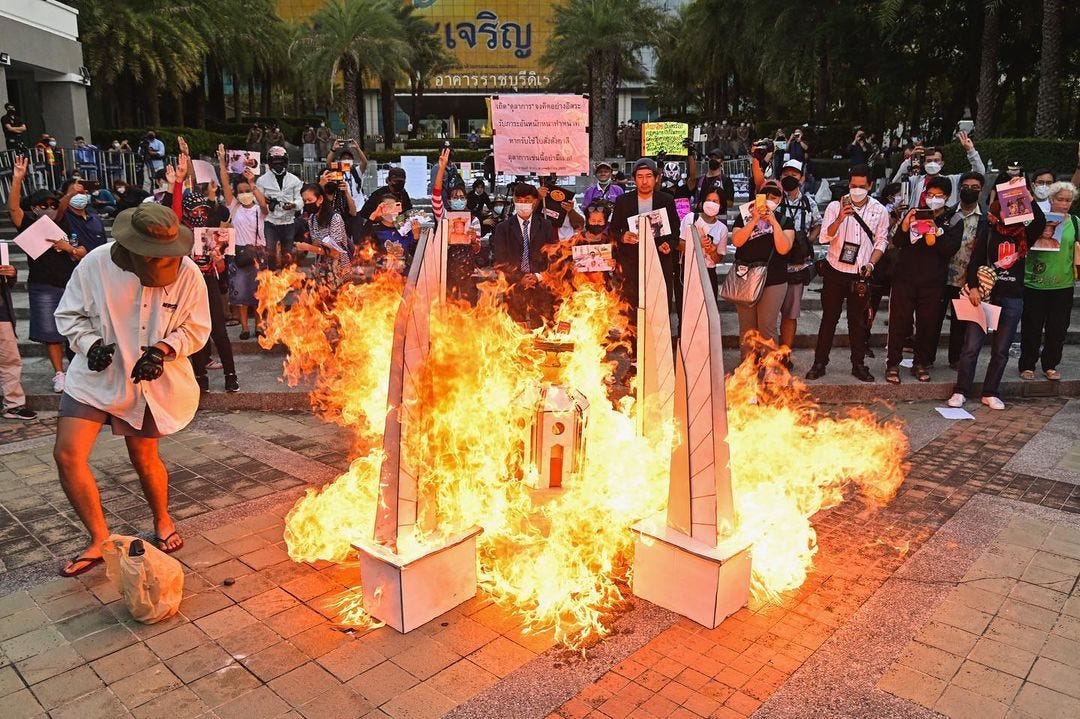

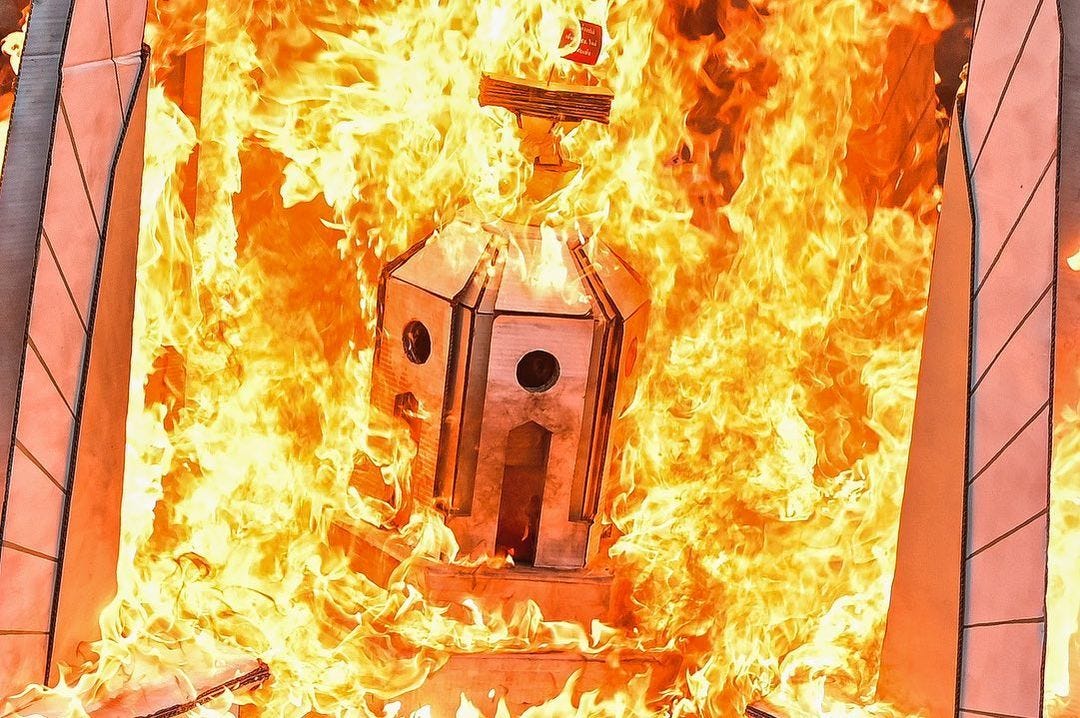
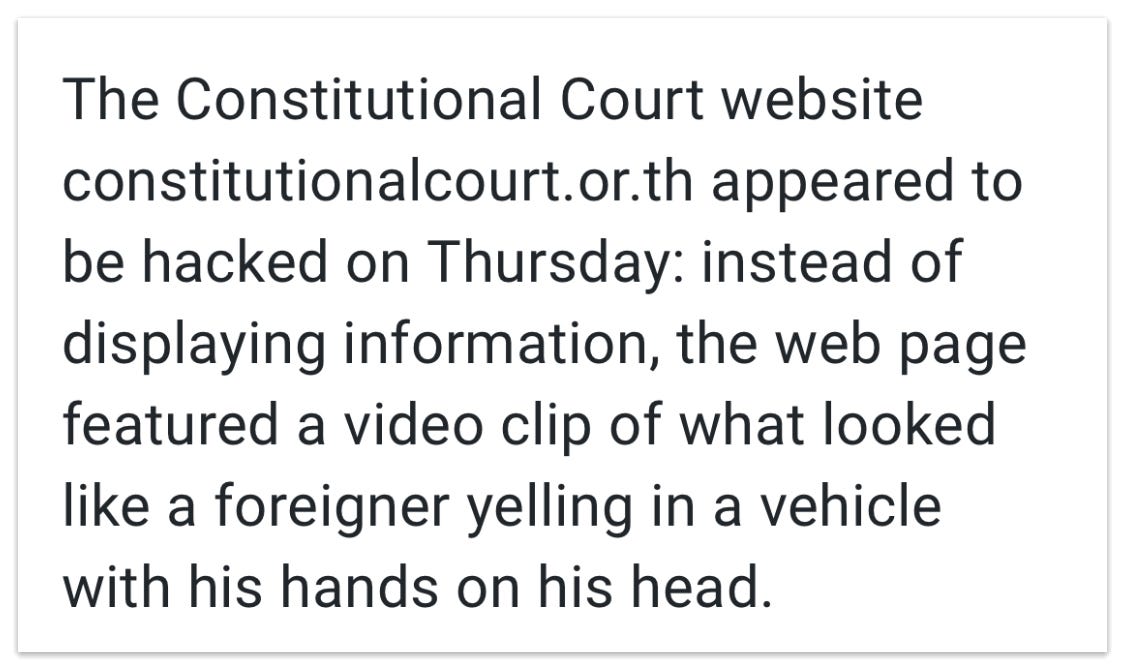
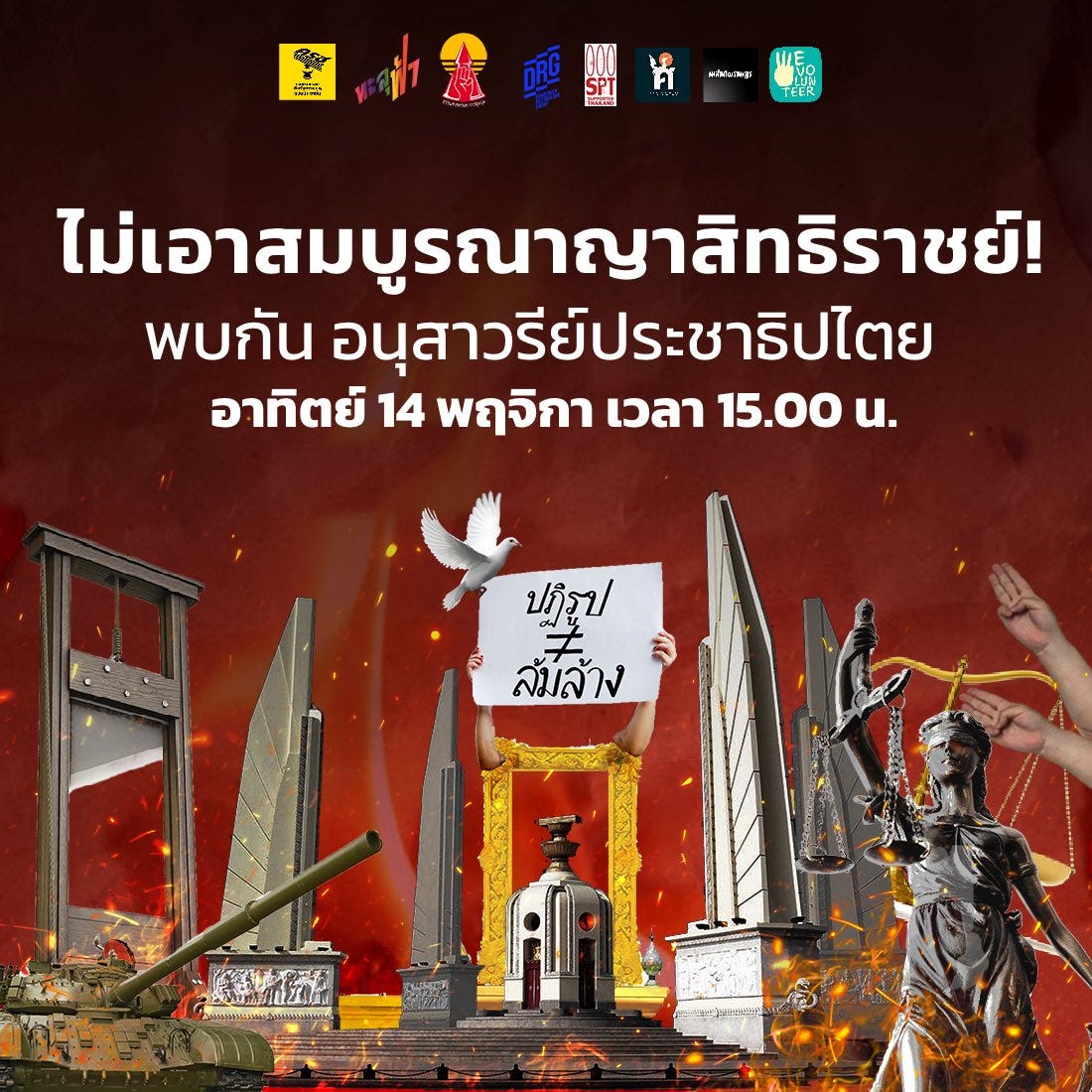

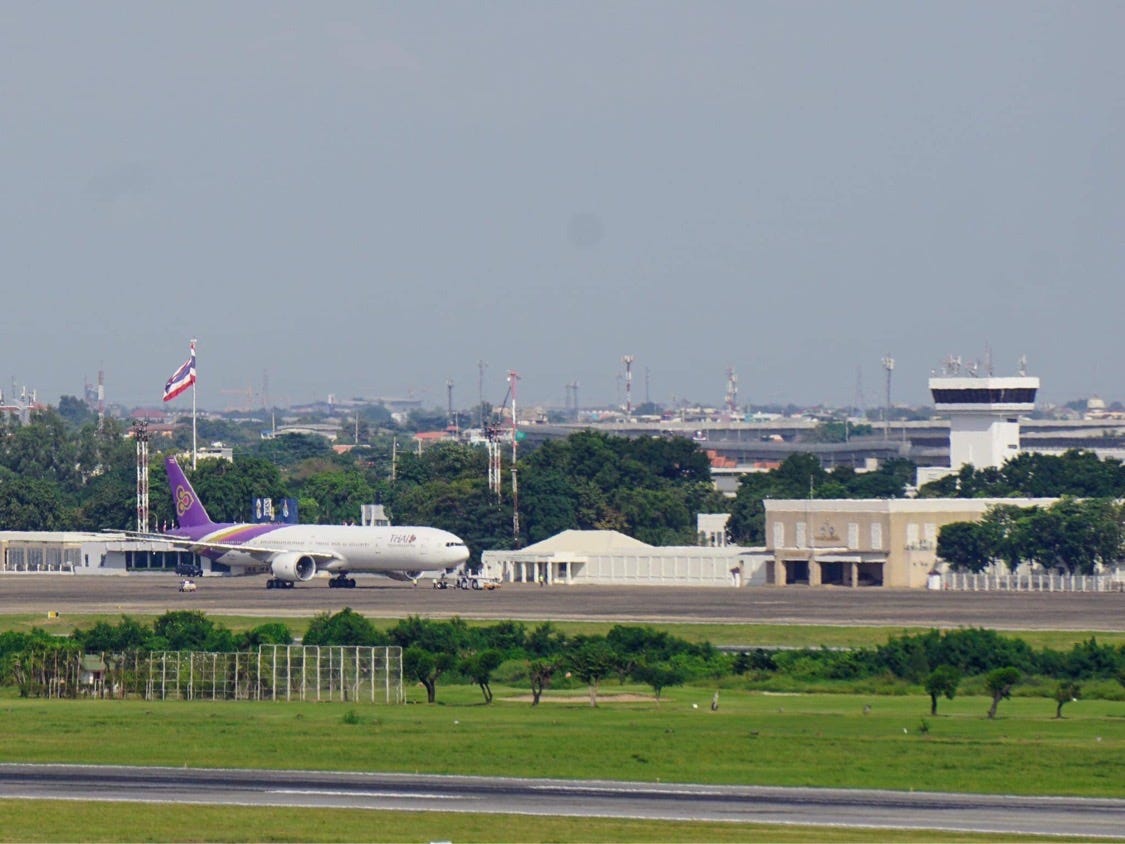

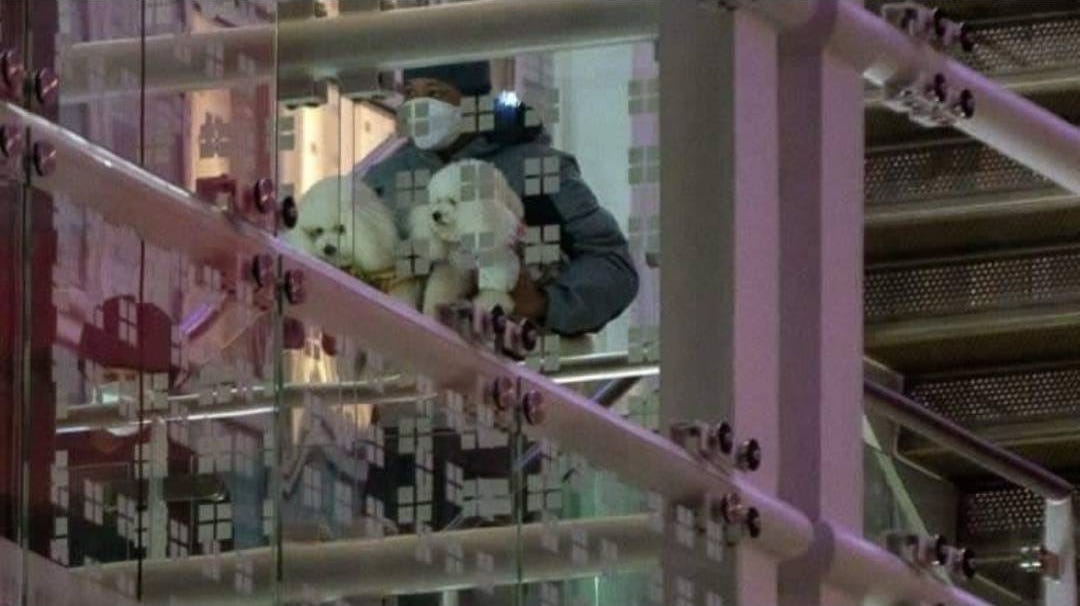

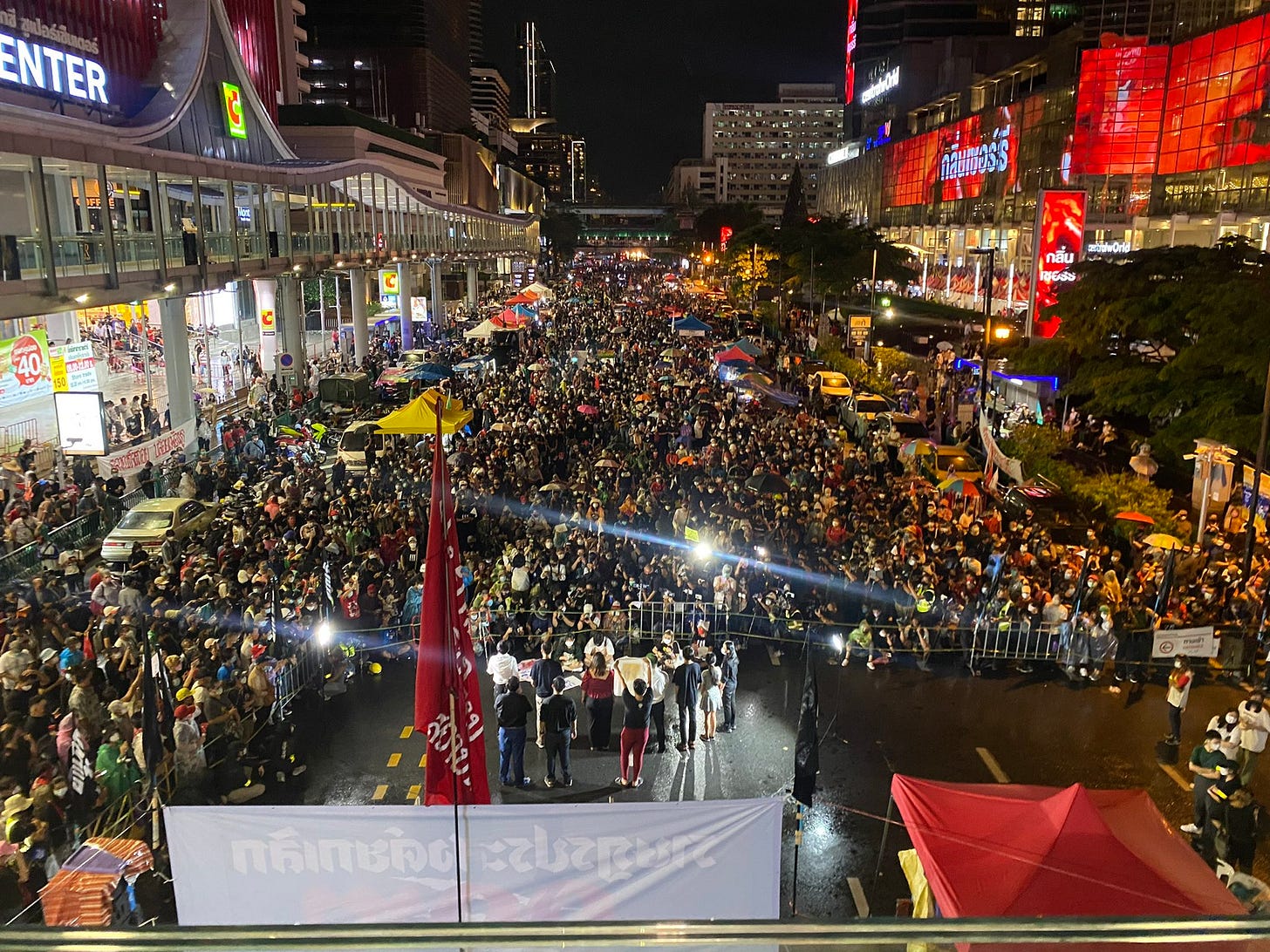
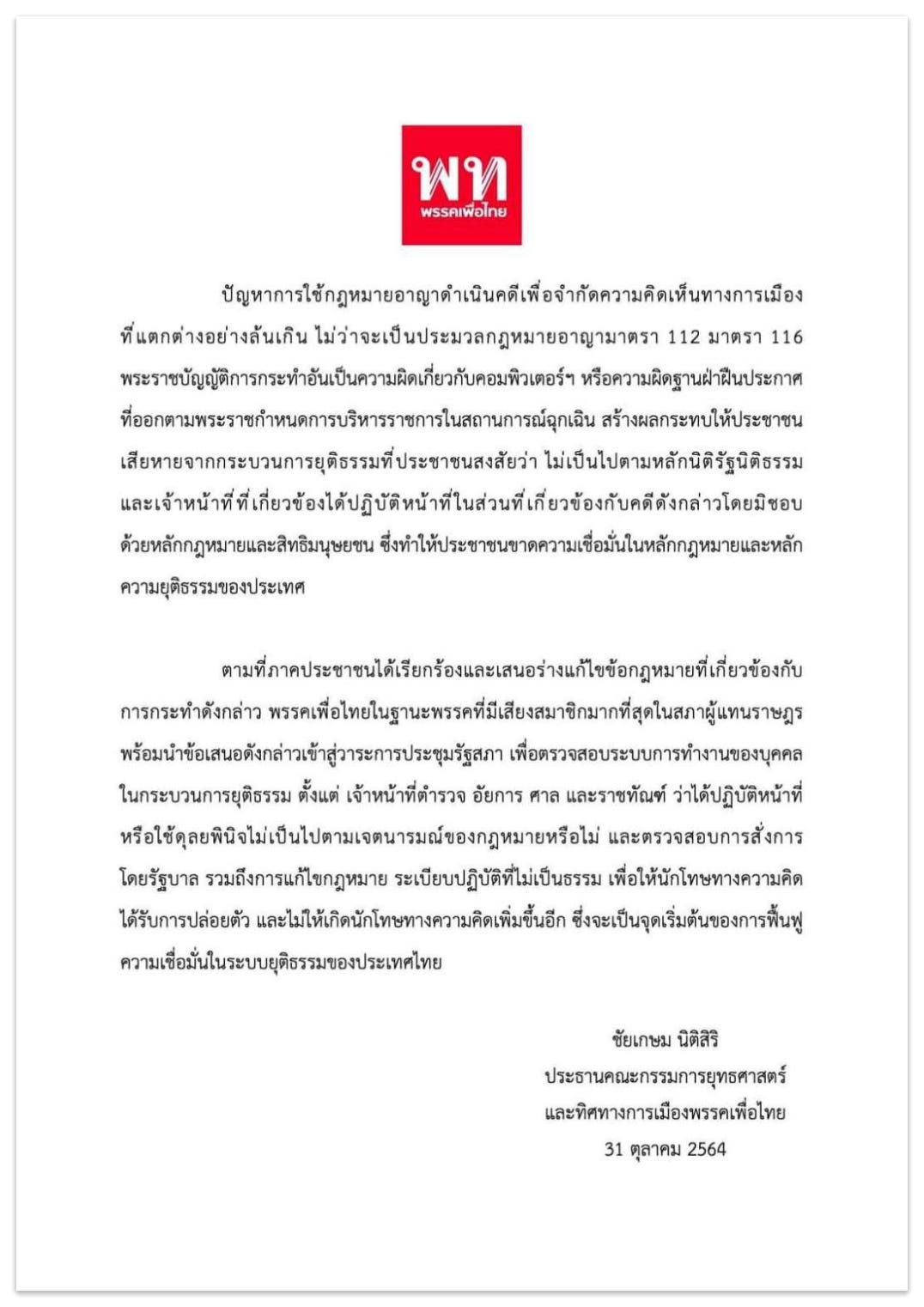



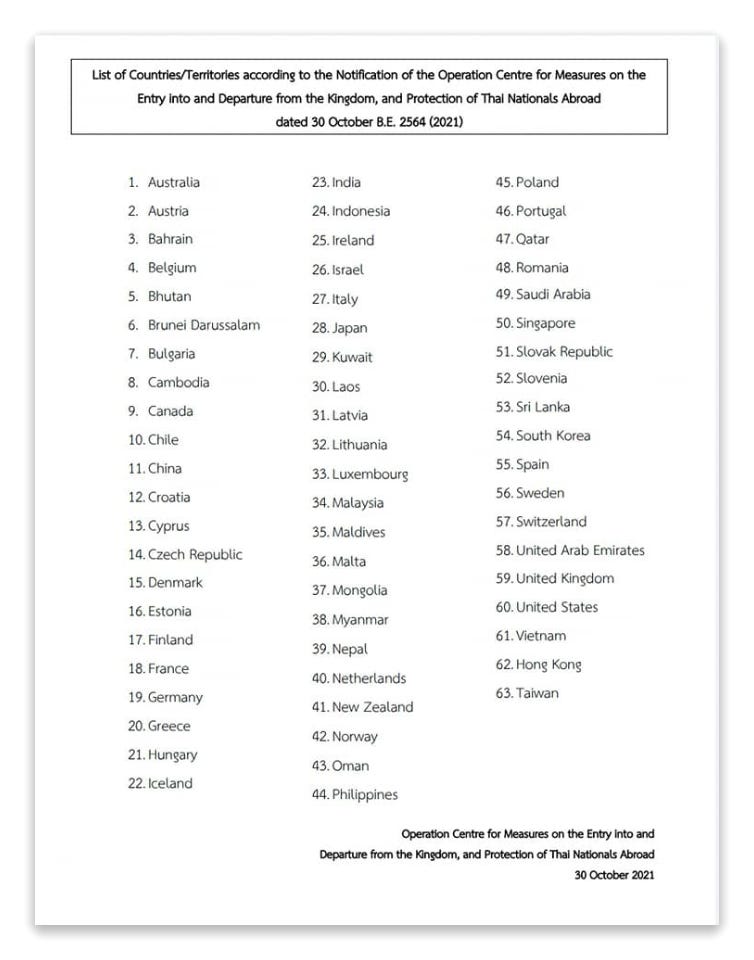
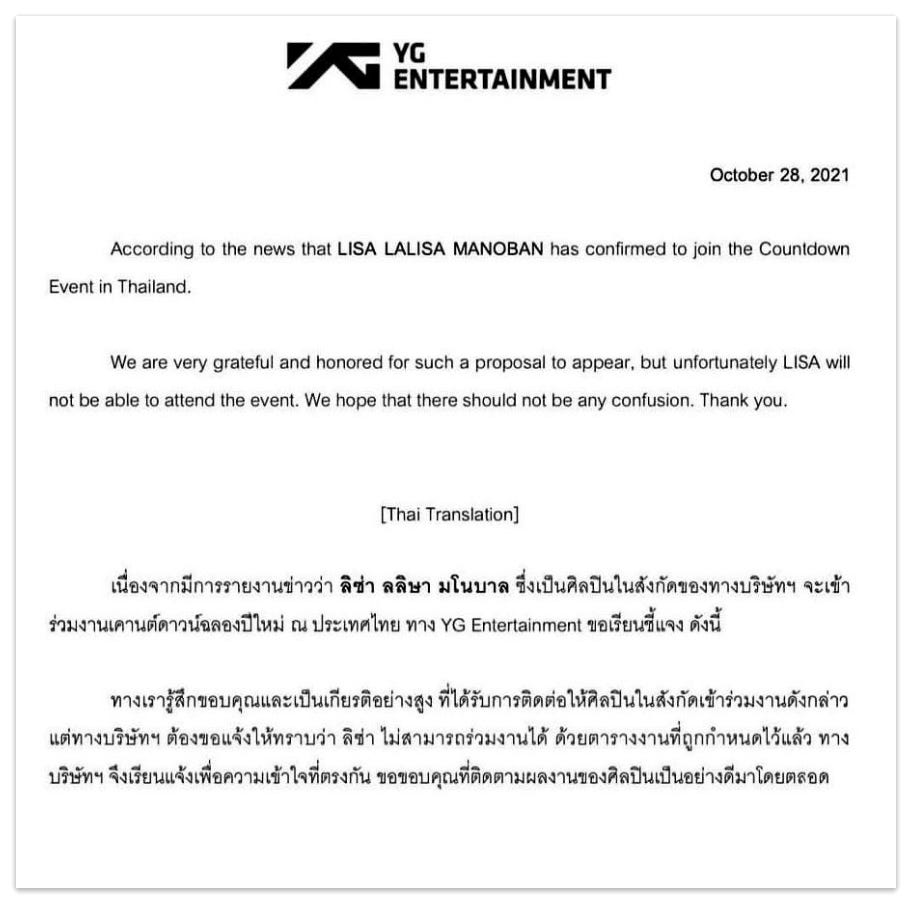
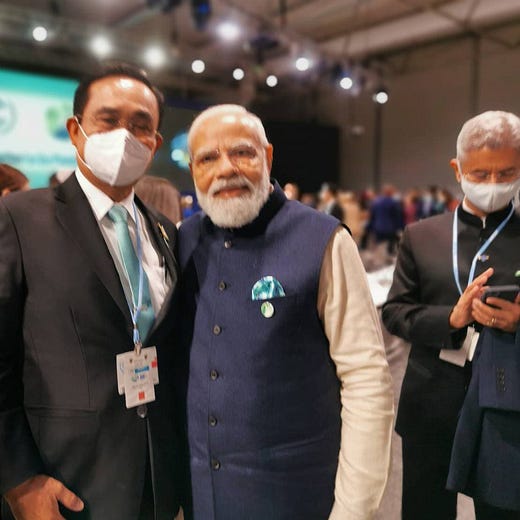
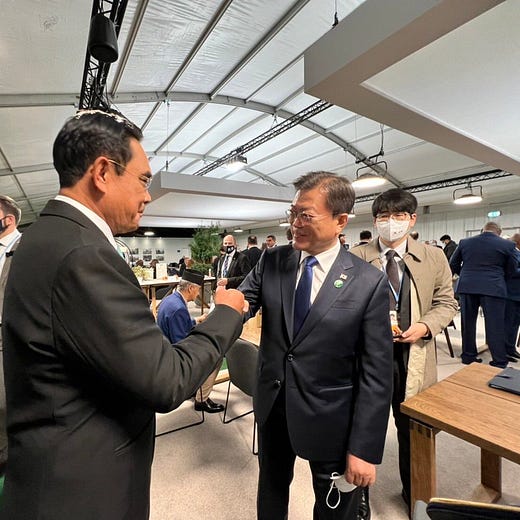
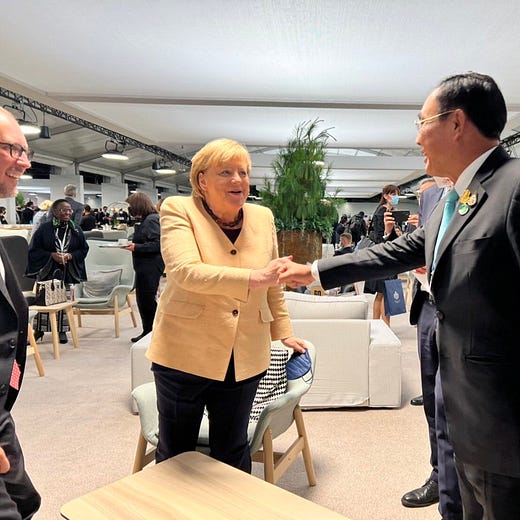
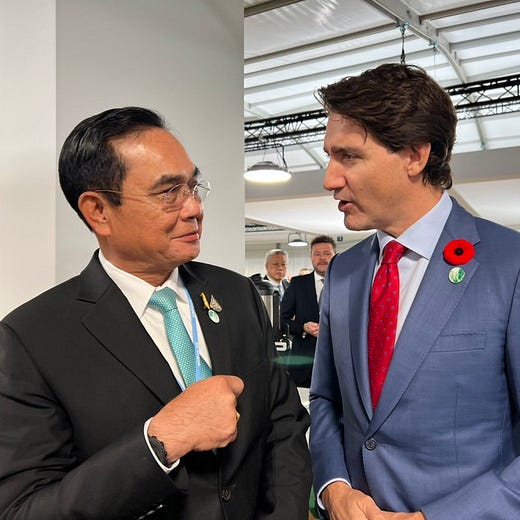
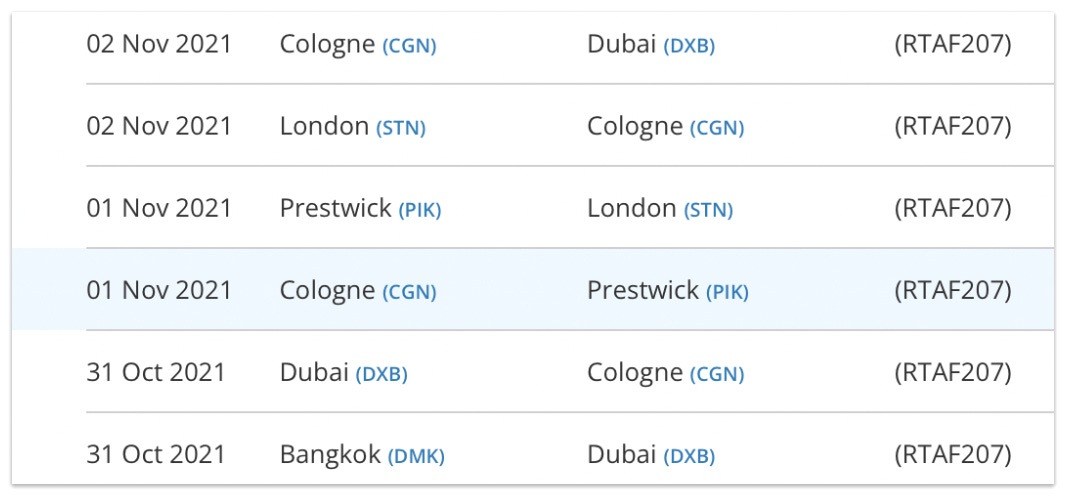
anybody must concur, with grave sadness- and anger- that there is nothing but darkness in Thailand's future... re X's rearrival in Germany, BILD had a piece on it, and they mocked Vajinalongkorn (sic intentional, of course) relentlessly, repeatedly showing pix of his crop top shopping escapade, his coronation, and his FuFu the air marshall...
Yeah, Mr.Andrew MacGregor Marshall. Thank you very much for this weekend Secret Siam Newsletter krub…😿❤️🌎👍